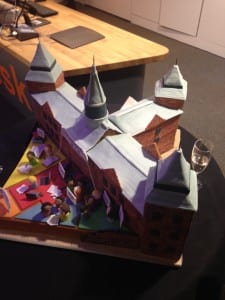Promoting THE Award shortlist
By simon.bralee.15, on 6 October 2021
The Student Centre team have been shortlisted in the Times Higher Education Awards under the “Outstanding Library Team” category. This is an amazing achievement and we want to celebrate it.
Image for email signature
Please can you attach this image to your email signatures. More information on how to do this is available on the ISD webpages.
The image is also available for download from the THE Awards website.
Sharing the news on social Media
The Library comms team will co-ordinate sharing the news through the library’s social media accounts. If you wish to tweet about the shortlisting in a personal capacity on your own accounts, please do use the hashtag #THEAwards.
About the awards
The winners will be announced at a celebration event in central London on 25 November 2021. These are the 17th annual THE Awards, perhaps better known as the “Oscars of higher education”.
This year they focus primarily on activity during the 2019-20 academic year, and so include a large number of submissions based on the initial response of all HE institutions to the unique and wide-ranging challenges brought by the Covid-19 pandemic.
 Close
Close







